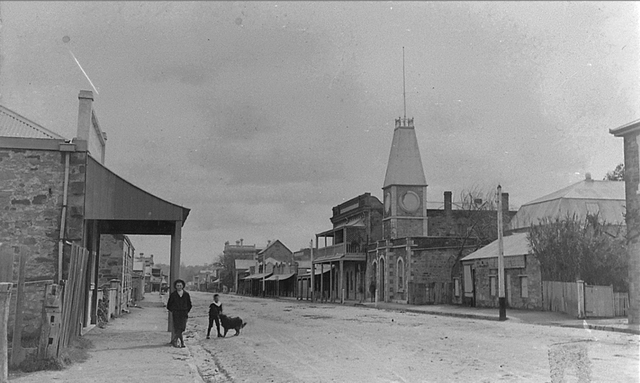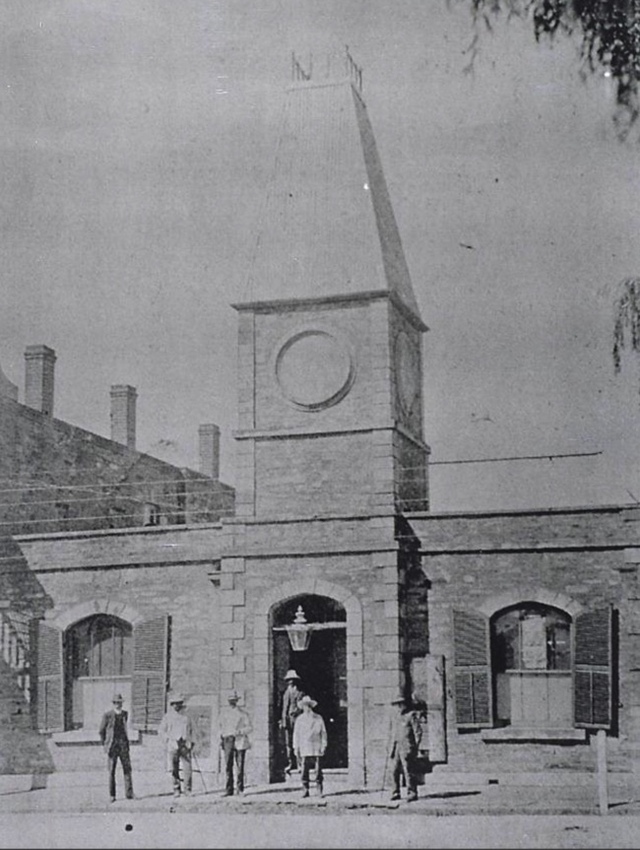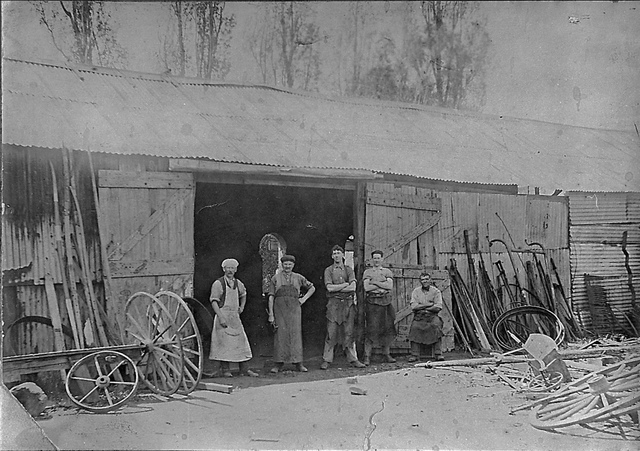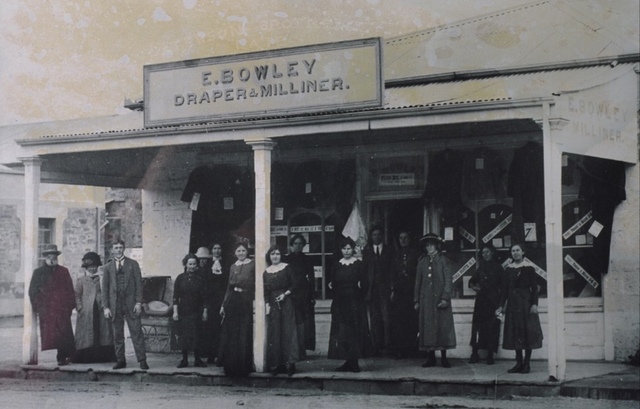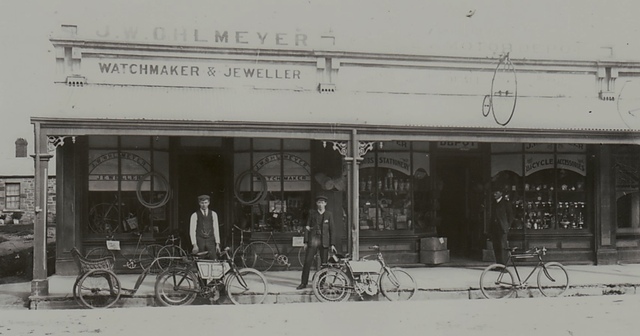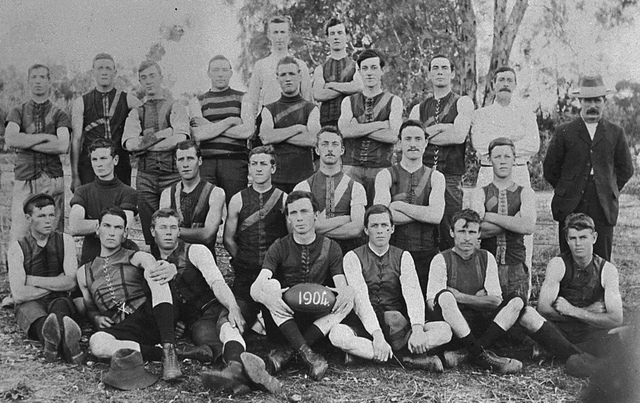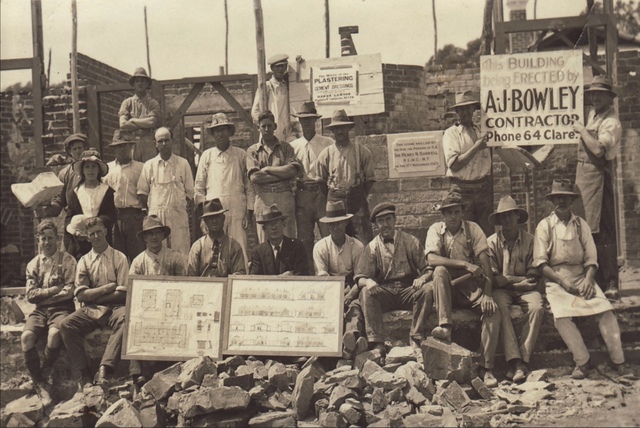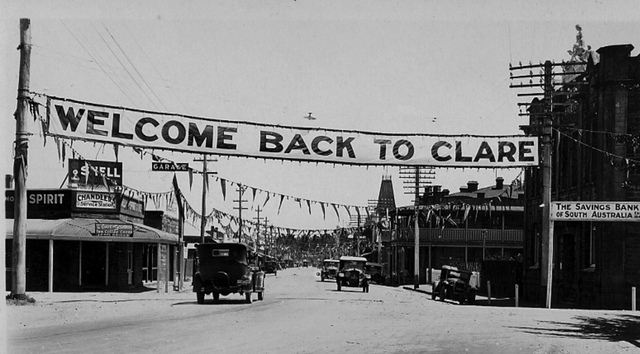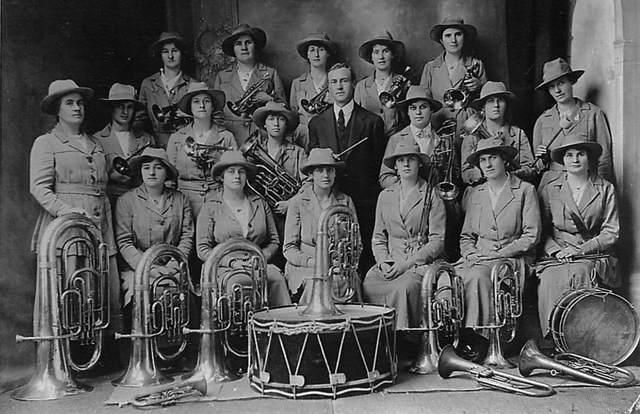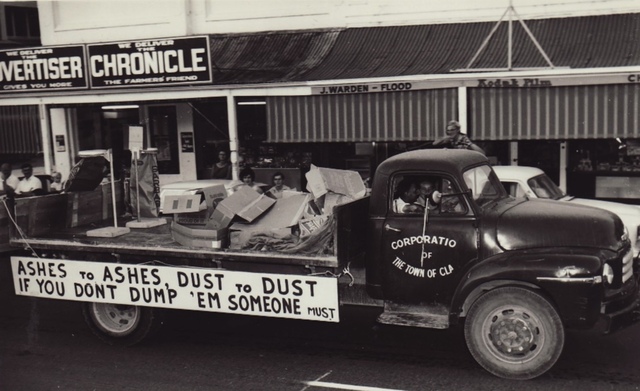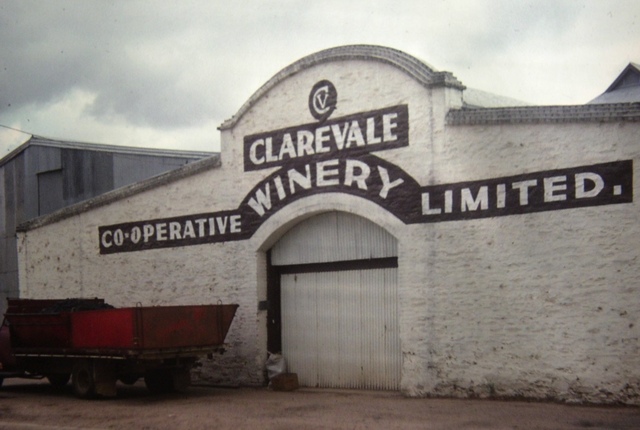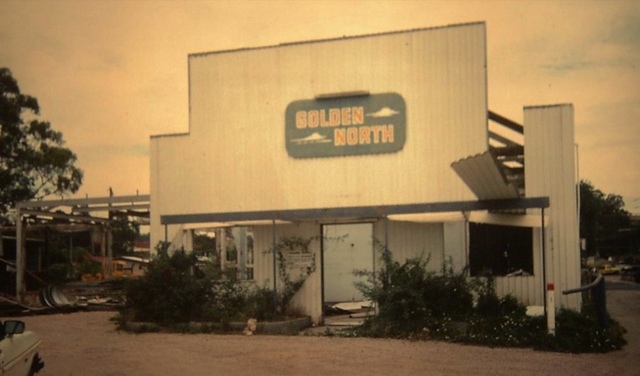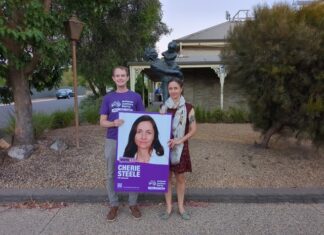This year marks the 40th anniversary of the group that has strived to promote and preserve the history of the Clare Valley.
Clare Regional History Group was founded in 1984, with the people who drove its creation including local historian Bob Noye, who wrote the book ‘Clare: A District History’, first published in 1975, as well as district clerk Lyndsay Chambers.
The inaugural meeting of the then called Clare Local History Collection Committee was held at the Clare Public Library on April 4, 1984.
Mr Noye and Mr Chambers were present, as were Fred Dinham (mayor), Dirk De Zwart (councillor), Annabel Dixon (librarian), Barry Hicks, Bill Barratt, Helen Dickeson and Gerald Lally.
At the time Mr Lally was a representative of the Community Development Board, and today he serves as group chairperson.
The then District Council of Clare (now Clare and Gilbert Valleys Council) provided its support with some initial funding and the use of the upstairs area of the Clare Library to house the group’s collection.
The group continued to grow, under the Community Employment Programme, the council was able to secure a junior female and the group was able to access her for three months, where she would help photocopy and index local council, school and church records.
Avenues for funding continued to emerge, with Mr Noye successful in obtaining a $12,000 Australian Bicentennial Grant in 1988 and group member Win Johnson launching her book ‘Clare Cameos’, supported by the council, and contributing any sale profits to the group, as she would with her her next book, ‘Cottages and Cameos’ two years later.
Change would take place after the early years, the name Clare Regional History Group Inc was officially adopted on March 6, 1986, and in February 2006 they moved to the former Clare Council Chambers, upstairs in the Clare Town Hall, where they remain to this day.
The collection the history group has built up is a treasure trove of documents and pieces detailing the history of the region, which includes a complete set of Northern Argus newspapers from 1869 to 2020, more than 260 archival boxes of records donated from local clubs, organisations, families and sporting bodies on top of copies of council records, and more than 1500 books referencing the history of Clare, the Mid North and local families.
There is also the Cross Collection, which is made up of 200 South Australian regional history books donated to the group by the late Professor Jack Cross.
Sadly, one resource it no longer has is the 152 leather bound volumes of the Clare District Births, Deaths and Marriage Registers dating from 1857, as these are now in possession of State Records, however the group still has these on microfiche and hard copy indexes to these volumes are still on their bookshelves.
The group is always happy to receive photos, minute books and the like from local organisations to grow its collection even more.
Mr Lally said the group had continued to see people access resources in their possession to learn important historical information.
“Since our inception tracing a family history (genealogy) has been the major area of interest for our visitors,” he said.
“We had a group of six people from Victoria come to research family history, they stayed in the valley and gave a $100 donation.”
So far this year the group has welcomed visitors from Western Australia, Victoria, Canberra, Adelaide and across regional South Australia who had come to research their Clare ancestors.
As well as Mr Lally the current committee is made up of Wendy Spackman (vice chairperson), David Forsaith (secretary), Josie Hudson (secretary), David Bond (newsletter editor), David Spackman, Pam Curran and Jon Ruwolt.
To mark 40 years of the history group, an event is being held at the Barbara Long Room in the Clare Town Hall on Friday, April 12 from 10.30am to 12.30pm.
Guest speaker will be Pam Rajkowski OAM who has specialised in the history and contributions of Australian Afghan cameleers, with the event also to feature Mr Lally and group patron Val Tilbrook.
Refreshments and a light luncheon will also follow, and the history room will be open from 1-4pm upstairs in the town hall.
For a committed group, run by volunteers, to reach a milestone like 40 years shows the passion of the people who have kept it going over the years, especially with an important task like preserving local history.
This task is continuing into the future as it continues its digitisation, which has included records for cemeteries, churches, schools, community groups, council, families and hospitals, as well as maps, plans and photos.
Clare Regional History Group is open to the public each Friday from 1-4pm, and on May 26 this year the group is hosting a visit to both Clare and St Barnabas cemeteries as part of the SA History Festival, which will see local historians speak about the lives of some of the local pioneers who lay in the two cemeteries.
With the continued commitment of the people behind it, there is a strong hope the history of Clare and surrounds will continue to be in safe hands for another 40 years, and beyond.

